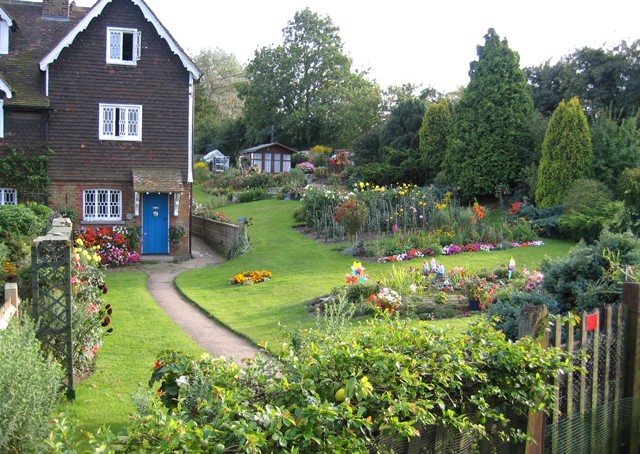Gardening is a great activity for people, offering both physical and emotional benefits.
My own gardening success is limited to a bag of sad-looking onions and potatoes, but I’ve enjoyed every minute of it.
So let’s take this outside (in a nice way, of course). Here are seven good reasons to get gardening with diabetes.
7. So you know what’s in your food
Following a healthy diet can be tricky, not least because you can’t always be sure what’s in store-bought food. Growing your own solves the problem. Even if those onions you just harvested are a bit on the misshapen side, you know it’s all real.
6. For the satisfaction of eating it
Those onions will probably be the tastiest onions you ever did taste, to boot. Because there’s nothing like strictly metaphorical sweat and blood going into your food to make it taste so much more satisfying.
5. Because it’s a great form of exercise
Proper gardening isn’t all pottering about in your wellies and pointing at things; it’s hard work. Digging flower beds and vegetable patches, carrying big bags of mulch – you’ll really feel it, at least at first.
Gardening, then, is a great form of exercise. If you need to lose weight, gardening is a great way, the kind of exercise that you hardly notice because you’re so focused on the task (which is good if you’re like me and easily bored by treadmills).
Gardening is also an excellent cardiovascular workout, which is great for everyone with diabetes, type 1 or type 2, because heart disease is one of the most common diabetic complications. Over time, prolonged exposure to high blood glucose levels can damage the arteries and restrict blood flow. So the benefits of cardiovascular exercise are twofold: it lowers high blood glucose levels, which reduces the risk of complications in the first place; and it protects your heart, which makes you less likely to develop heart disease.
4. To get plenty of vitamin D
Recent studies have linked vitamin D deficiency to an increased risk of type 2 diabetes, and the best place to get vitamin D is from sunshine. So get cracking on your garden; it’s a great excuse to get some sun.
And even if those grey skies and ominous, rumbling clouds don’t quite count as “sunshine,” it’ll still do you some good.
3. To protect your brain
Gardening keeps your brain healthy. Research indicates that the mental demands of gardening stave off cognitive decline. This is good news for people with diabetes, who are more likely to suffer memory loss and cognitive impairment. In fact, some people think that Alzheimer’s disease should be called “type 3 diabetes.”
Again, it’s to do with high blood glucose levels, which can damage the hippocampus – that part of your brain that concerns things like memory, and not a university for large amphibious mammals[1] – over time.
2. To surround yourself with something beautiful
Gardens are also a source of beauty – we can all agree that a well-tended bed of flowers is an aesthetically pleasing sight. And we all need beauty in our lives: studies have shown that being surrounded by flowers helps with depression, anxiety, and other mental health issues.[2] Which is particularly useful for people with diabetes, who, according to the National Institute for Health and Care Excellence, are three times as likely to suffer from depression.[3]
So, a little patch of land and some seeds can be the key not only to physical wellbeing, but emotional health too.
1. It gives you a place to sit and be
You need this stress-free space. We all do. Not only for general wellbeing, but also for diabetes: stress hormones increase the demand for insulin, which puts ever-increasing pressure on your pancreas. That’s why a Swedish study linked a higher risk of type 1 diabetes in children to stressful childhood events.
Take time while in your garden to simply sit and be. Close your eyes and listen to all the sounds around you. Really listen. And don’t think about anything. Just exist. Your garden is a cocoon from relentless, restless thinking. Herein lies its real value.
So go get gardening, and let us know how it goes on the forum. Why not take a few pictures of your glorious produce and soil-stained hands, and share your grassy knoll-edge[4] with your fellow diabetic green thumbs.
[1]Sorry.
[2] https://www.epjournal.net/wp-content/uploads/ep03104132.pdf
[3] https://www.nice.org.uk/guidance/cg91/chapter/introduction
[4] Again, sorry.




